第53章
meat at present, and its low price formerly, were not caused by the scarcity in the one case or the plenty in the other, but by the different expense sustained at the different periods, in preparing cattle for the market. It is, however, possible, that there might have been more cattle a hundred years ago in the country than at present; but no doubt can be entertained, that there is much more meat of a superior quality brought to market at present than ever there was. When the price of butchers' meat was very low, cattle were reared chiefly upon waste lands; and except for some of the principal markets, were probably killed with but little other fatting. The veal that is sold so cheap in some distant counties at present bears little other resemblance than the name, to that which is bought in London. Formerly, the price of butchers, meat would not pay for rearing, and scarcely for feeding, cattle on land that would answer in tillage; but the present price will not only pay for fatting cattle on the very best land, but will even allow of the rearing many, on land that would bear good crops of corn. The same number of cattle, or even the same weight of cattle at the different periods when killed, will have consumed (if I may be allowed the expression) very different quantities of human substance. A fatted beast may in some respects be considered, in the language of the French economists,36 as an unproductive labourer: he has added nothing to the value of the raw produce that he has consumed. The present system of grating, undoubtedly tends more than the former system to diminish the quantity of human subsistence in the country, in proportion to the general fertility of the land.
I would not by any means be understood to say that the former system either could or ought to have continued. The increasing price of butchers' meat is a natural and inevitable consequence of the general progress of cultivation; but I cannot help thinking, that the present great demand for butchers' meat of the best quality, and the quantity of good land that is in consequence annually employed to produce it, together with the great number of horses at present kept for pleasure, are the chief causes that have prevented the quantity of human food in the country from keeping pace with the generally increased fertility of the soil; and a change of custom in these respects would, I have little doubt, have a very sensible effect on the quantity of subsistence in the country, and consequently on its population.
The employment of much of the most fertile land in grating, the improvements in agricultural instruments, the increase of large farms, and particularly the diminution of the number of cottages throughout the kingdom, all concur to prove, that there are not probably so many persons employed in agricultural labour now as at the period of the Revolution. Whatever increase of population, therefore, has taken place, must be employed almost wholly in manufactures, and it is well known that the failure of some of these manufactures, merely from the caprice of fashion, such as the adoption of muslins instead of silks, or of shoe-strings and covered buttons, instead of buckles and metal buttons, combined with the restraints in the market of labour arising from corporation and parish laws, have frequently driven thousands on charity for support. The great increase of the poor rates is, indeed, of itself a strong evidence that the poor have not a greater command of the necessaries and conveniences of life, and if to the consideration, that their condition in this respect is rather worse than better, be added the circumstance, that a much greater proportion of them is employed in large manufactories, unfavourable both to health and virtue, it must be acknowledged, that the increase of wealth of late years has had no tendency to increase the happiness of the labouring poor.